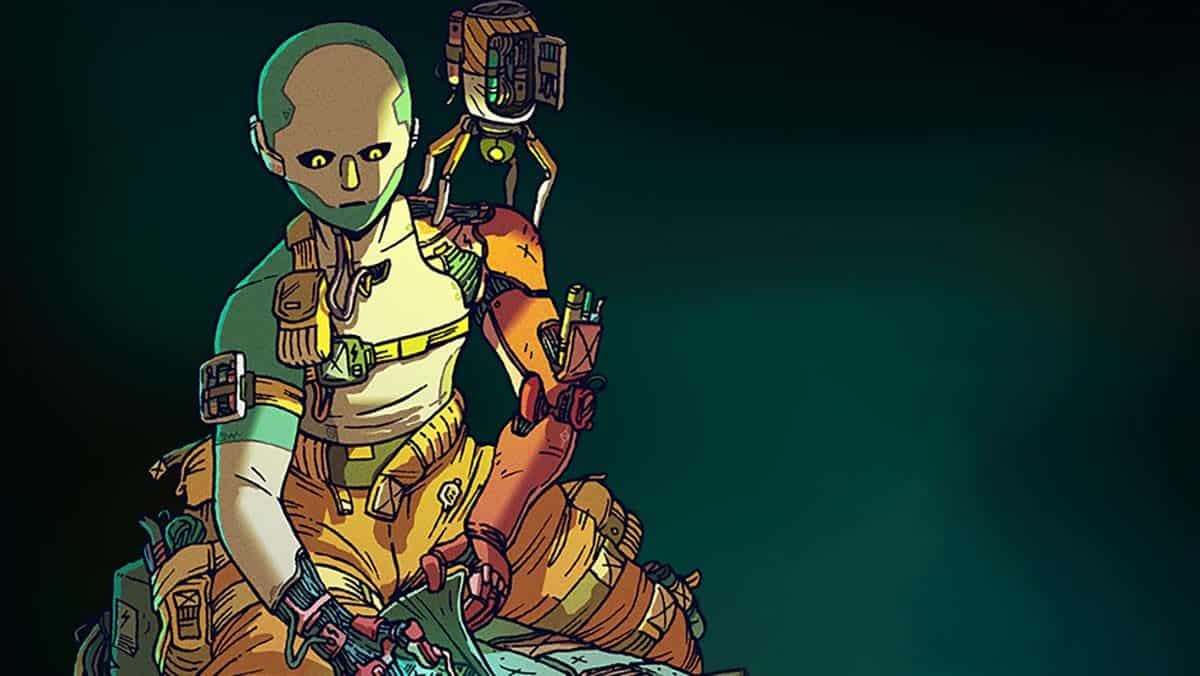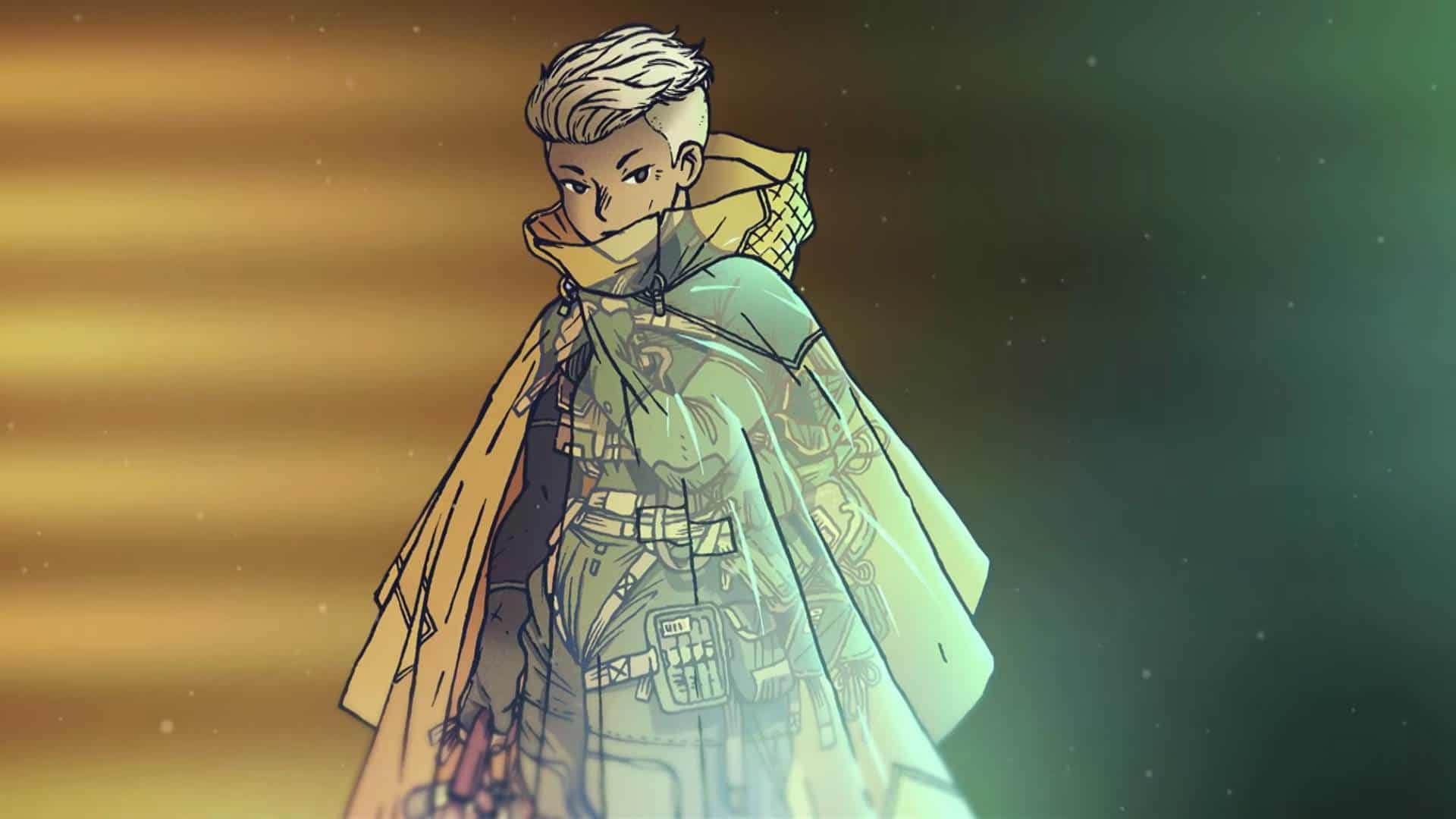The protagonist of Citizen Sleeper lives and functions on a huge area station. Other than they do not. They are, in fact, in other places. Sleeping. A copy of their consciousness has been mounted in a “frame”: a artificial humanoid, composed of metal and wiring—and technically owned by a corporation—to whom folks refer as a Sleeper. So, the title is at when a declaration and a sly probing of a problem: is our sleeper any much less a citizen for the deficiency of an first system? Are we all not living on borrowed time, if not borrowed home? And how a lot of staying a citizen actually entails becoming awake?
The station is named the Eye, and, although we do capture occasional violence on its streets, the position is hardly as bloodshot as Night time Metropolis, from Cyberpunk 2077. However it does possess a identical techno-bustle. In spite of its title, it a lot more carefully resembles the wheel of a bicycle—circular, equipped with spokes, and completely tired. The Eye is a destroy, tumbling from the hands of many businesses and thence into disrepair. Those people that dwell and prosper on its curvature do so in the knowledge that their times are precarious. No matter whether by mechanical or ethical malfunction, it could all tumble in a blink. You get the perception that lifetime below has sprang up and distribute amid the breakage of an previous purchase, like moss furring the cracks of a derelict church. But the outdated order is nonetheless hanging all-around. A spectre is haunting the Eye—the spectre of capitalism.
If you have just assumed the brace placement, fearing the brain-numbing turbulence of a lecture, I really don’t blame you. There are people, in Citizen Sleeper, that roll up and easily declaim their wisdom: “As significantly as I’m involved, people today must be the kinds working the systems, not the other way all-around,” another person suggests. And at a single stage your character feels “A longing to be carried. Not by the methods that spin the suns, or the businesses that run the colonies. But by appreciate.” Give me a crack. But so, far too, do we get Hardin, a gray-haired honcho with a criminal heritage, who gives a gruff rebuff: “It took perform, diplomacy and power to end the Eye descending into chaos,” he suggests. “Not blind conviction or self-curiosity.” In times like this, the tactic of the game’s author, Gareth Damian Martin (who is also credited as its creator and designer), requires on a much more discursive air.
Additional than everything, Martin cares to give us texture. The drama and the motion unfold in prose, and it is the kind that prods at your senses more than your conscience. I significantly relished the funky pressure of eco-fi that we get, as we glimpse a method “releasing its data like ink in water,” and as we observe an A.I. putting in a fresh update, pressing it “down into the loam of details beneath them.” Who knew that the pleasures of programming are rooted in people of the inexperienced thumb, that info is there to be planted and pruned? Granted, we have all ventured onto Twitter and felt comprehensively dirty, but this is various. Martin has introduced fecundity to application and, though some passages could do with a little weeding, the prevailing temper is both equally lush and lonely, like a walled back garden.

Additionally, if you like that, wait until eventually you get to the food—to the oiled woks, the “thick chunks of marinated fungus,” the “sliced greens in some purple-flecked dressing,” all of it “rich, spicy, delicately sweet.” When was the last time a game tempted you into buying takeout? The a single dishing up the feast is Emphis, a avenue seller who could have stepped straight from the backgrounds of Blade Runner, with their steaming noodles and interminable rain. Emphis’s arms are ringed with curious scars, and, in one particular scene, we trace them to a dark backstory. Emphis, we are informed, was the moment grafted on to a device, named a “Bonesuit,” (shades of the Cranium Fit, from Steel Gear Sound 2: Sons of Liberty) for the purposes of robo-boosted labour but it’s the artwork, by Guillaume Singelin, that does the weighty lifting here. Emphis is laughably saddled with equipment—pans, bottles, bags stuffed with utensils, plastic trays bearing mushrooms. He is the spit of Norman Reedus, in Dying Stranding, Hideo Kojima’s examine of baggage-loaded bodies. Singelin’s style is akin to that of Yoji Shinkawa—who partnered with Kojima for that game, and several others—albeit more cleanly drawn, and clouded with the dreamy hues of Jean Giraud.
Alongside with Emphis, we also get Riko, a kindly old girl with a crutch, who dwells in the Greenway, a verdant belt from whence the station, presumably, draws its oxygen. There she plies her botanical capabilities, breeding and brewing all method of concoction, and runs the Hypha commune, in which the hippies go, hire-absolutely free, to focus on their own growth. Then we have Tala, who is effective at the Forget about bar, an unstilled soul who yearns to increase her spirits by making whiskey, and rebranding the institution. And Bliss, a mechanic who floats and tinkers in zero gravity, itching to be cut adrift from the Eye. What Martin is accomplishing, in brief, is assembling the seethers: individuals floor-amount extras that throng the cyberpunk style, normally lending support to a Harrison Ford-like hunk.
As if to drive the point house, along arrives Ethan, a bounty hunter with a shoulder holster, a shock of blonde hair, and a mud-brown jacket. Normally, he is (1) handsome, (2) a bastard, and (3) immediately after you—or, at least, following the money that he will web for your entire body, the far better to glug himself into a stupor. He is, in other words and phrases, a reshuffled and fifty percent-slash Deckard, and a stark reminder that, of all the characters right here, none would be extra secondary, in a common tale, than you. And even in this article you are barely a hero. Real, you get to make options key conclusions and dialogue alternatives are there for the clicking, but the results of most of your actions is carried not by the methods that spin the suns, nor by the companies that operate the colonies, and however a lot less by really like, but by that most loaded of cosmic forces: luck.

Every day—or “cycle,” as they are called—you are dealt six dice. These are fed into different routines every little thing from sawing by means of weary hulls in a salvage garden to participating in a recreation of tavla (a kind of backgammon analogue) is governed by whichever die you press into a slot. Jewel it with a 6, and you are probable to experience bountiful rewards jab a one particular or a two into the energy, and you may possibly drop or, even worse, arrive away with your electricity sapped. This is replenished, quickly more than enough, with food stuff, but your Sleeper suffers a deeper illness. Essen-Arp, the company that considers you very little extra than lacking gear, has bestowed on you a “planned obsolescence”—an insurance policies plan of sorts, which turns your firmware friable. Consequently, you involve normal doses of stabilising medicine, which never come cheap. As we are educated by Sabine, a medical doctor who sports activities a poncho of translucent-yellow plastic, as though shielded from an at any time-existing downpour, “Nothing comes free Sleeper, don’t forget that.”
Certainly, and not the the very least stunning detail about Citizen Sleeper is that its sights and smells do not get there at the price of pleasurable. The patterns of its play—doing work opportunities for dollars, encouraging some others, completing quests—have the rhythm of do the job, but they are shipped, via a string of computerish interfaces, with beeping abstraction. Your toils are not your have. A handful of many years back again, I spoke to Martin, who explained, “We are employed to getting the ‘body’ in a game—the a person who opens doors, fights enemies, bodily explores spaces. . . . I desired to obtain a distinctive language to the normal direct avatar manage and bodily interactions of a activity. That was when I turned to the thought of a personal computer interface.”
The issue of our discussion was Martin’s debut, In Other Waters, a activity set in an alien ocean, of which we by no means see a drop. We suppose the purpose of an A.I., plugged into the diving suit of a xenobiologist, and we see the earth by the swish and swirl of its emanations. “To me there’s one thing excellent about the abstraction that is feasible with interfaces,” said Martin, “the way they can depict worlds by details, signals, and programs.” A great deal of the energy of Citizen Sleeper flows from that game’s singular premise. Both equally share a composer, in Amos Roddy, whose rating is rich in susurrations and synth. And both ache with the generate to escape. For this reason the hacking skill that your Sleeper discovers, which casts the station in a snowy haze this ghost globe, we are advised, curls through the bodily realm “like smoke by air.” When, later on on, one quest delivers the chance to depart your body driving and slip permanently into this formless plane, it’s a minute of breathless likelihood but you can’t assist asking yourself from what personalized depths such passages should have emerged. Machines, bodies, folks, interfaces, souls: with Citizen Sleeper, Martin’s elusive themes pass—like ink in water, like smoke as a result of air—into the ideal frame, and get to a thrilling consummation. But practically nothing arrives free of charge.
